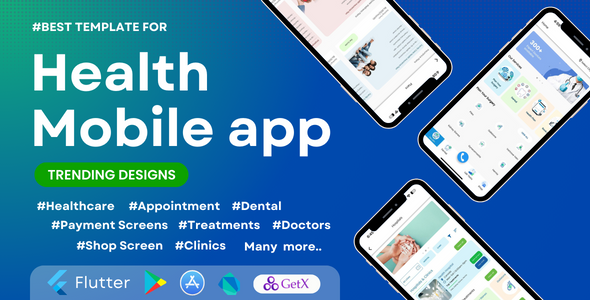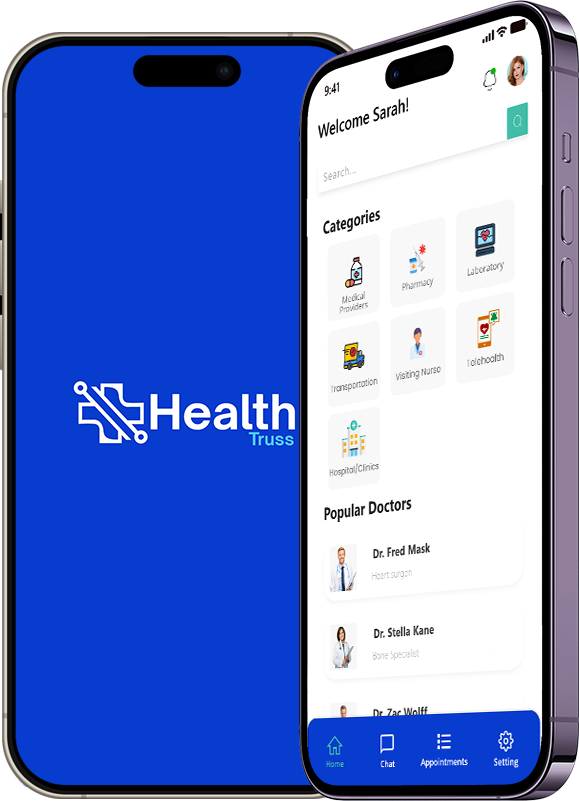Change Patient Treatment with a Mobile App for Clinics: Leading Features to Take Into Consideration
Change Patient Treatment with a Mobile App for Clinics: Leading Features to Take Into Consideration
Blog Article
The Future of Health Care: Why Clinics Need a Mobile Application Today
As the healthcare landscape continues to progress, facilities encounter mounting stress to adapt to individual expectations for higher benefit and accessibility. The assimilation of mobile applications can serve as a vital technique for boosting client involvement and simplifying procedures.
Transforming Client Expectations
As the landscape of medical care evolves, person assumptions are going through a significant transformation. Today's patients are significantly looking for convenience, availability, and individualized treatment. With the surge of innovation, particularly mobile applications, people now prepare for a seamless integration of medical care solutions into their day-to-days live. They desire the capability to handle visits, gain access to medical records, and connect with doctor via their mobile phones, reflecting a change towards a more proactive method to wellness administration.
In addition, clients are ending up being more educated and empowered, commonly researching conditions and therapies online prior to appointments. This heightened understanding is paired with a demand for openness in health care procedures, consisting of cost quotes and therapy options. Consequently, providers are forced to adapt by embracing digital tools that improve the client experience.
The expectation for prompt and efficient interaction has actually never been greater, with many patients thinking about responsiveness a critical component of quality treatment. mobile app for clinics. In this developing landscape, health care companies have to acknowledge these transforming expectations and take advantage of mobile applications to foster a more patient-centric strategy, making sure that they not only meet but go beyond the requirements set by today's educated consumers
Enhancing Individual Involvement

Mobile applications facilitate communication between individuals and medical care carriers, making it possible for real-time consultation organizing, tips for drug adherence, and straight messaging attributes. These capabilities not only boost ease however likewise develop a sense of liability amongst individuals. Additionally, mobile apps can supply instructional web content tailored to private requirements, aiding individuals much better comprehend their conditions and treatment options.
The assimilation of gamification elements within healthcare apps can also encourage people to involve in healthy behaviors, reinforcing favorable way of life changes. By tracking development and rewarding success, clients are most likely to remain dedicated to their health objectives. Inevitably, improving patient interaction via mobile applications leads to boosted wellness results, better individual satisfaction, and an extra collective healthcare experience. Centers that prioritize this aspect will likely see a considerable influence on the high quality of treatment supplied.
Improving Facility Procedures
Improving facility procedures is vital for boosting workflow performance and maximizing individual care. The execution of mobile applications can considerably reduce administrative concerns, enabling health care carriers to focus a lot more on person interactions. By automating appointment organizing, individual check-ins, and payment procedures, facilities can decrease wait times and enhance total read what he said functional efficiency.
Mobile apps also facilitate real-time access to patient records, enabling health care experts to make enlightened choices swiftly. This immediacy not just enhances the top quality of treatment yet likewise minimizes the chance of errors associated with misplaced or obsoleted info. Leveraging mobile technology supports an extra orderly approach to handling client follow-ups and treatment strategies, making sure that no crucial actions are ignored.
This enables for prompt replenishment and helps prevent disturbances in individual treatment due to equip shortages. By integrating these capabilities into their everyday procedures, facilities can create a much more effective and natural setting, ultimately leading to improved client outcomes and complete satisfaction.
Improving Interaction Networks
Effective communication is regularly pointed read review out as a keystone of high quality medical care distribution. In today's fast-paced medical environment, mobile applications can considerably improve communication networks in between facilities, clients, and doctor. By incorporating mobile applications right into their procedures, centers can promote real-time communications, ensuring that patients receive prompt details regarding their visits, test results, and therapy plans.
Mobile apps likewise empower individuals to interact directly with their medical care groups with secure messaging attributes. This direct line of communication fosters a feeling of involvement and permits for prompt information of worries, which can cause much better adherence to therapy procedures. Furthermore, press alerts can advise clients of upcoming appointments or medication timetables, reducing no-show prices and boosting general health and wellness outcomes.

Remaining Competitive in Medical Care
In a rapidly progressing healthcare landscape, organizations have to focus on development and flexibility to preserve an affordable edge. The assimilation of mobile applications into health care solutions is no more optional; it is necessary for clinics intending to boost patient engagement, improve procedures, and improve general service delivery.
As patients progressively rely upon digital platforms for health and wellness management, clinics that fail to adopt mobile innovation danger falling back. A properly designed mobile application can supply attributes such as consultation scheduling, telemedicine consultations, and access to medical records, offering clients with benefit and cultivating commitment.

Competitors are additionally buying mobile solutions, so remaining in advance requires continual improvement and staying notified regarding technological innovations. Clinics have to not only implement mobile applications yet additionally participate in normal updates and improvements. Eventually, the effective combination of mobile technology will certainly distinguish forward-thinking health care organizations and established the benchmark for patient-centric treatment in an electronic world.
Final Thought
In verdict, the integration of mobile applications in clinics is essential to resolve the evolving landscape of client assumptions. By enhancing client engagement, simplifying procedures, and improving interaction channels, facilities can substantially improve health results. In addition, the adoption of mobile modern technology placements clinics to stay affordable in an increasingly electronic medical care environment. Eventually, the calculated application of mobile apps stands for an important step towards providing available and individualized health care, consequently meeting the needs these days's empowered individuals.
Ultimately, enhancing patient interaction via mobile applications leads to boosted wellness results, better client contentment, and a more collaborative healthcare experience.Mobile apps additionally facilitate real-time access to individual documents, enabling health care specialists to make educated decisions continue reading this rapidly. In today's fast-paced medical atmosphere, mobile applications can dramatically boost communication networks in between centers, people, and healthcare companies.Mobile applications also encourage people to interact directly with their medical care teams through protected messaging attributes. Inevitably, the critical implementation of mobile applications stands for a critical action toward supplying tailored and available healthcare, therefore satisfying the demands of today's empowered patients.
Report this page